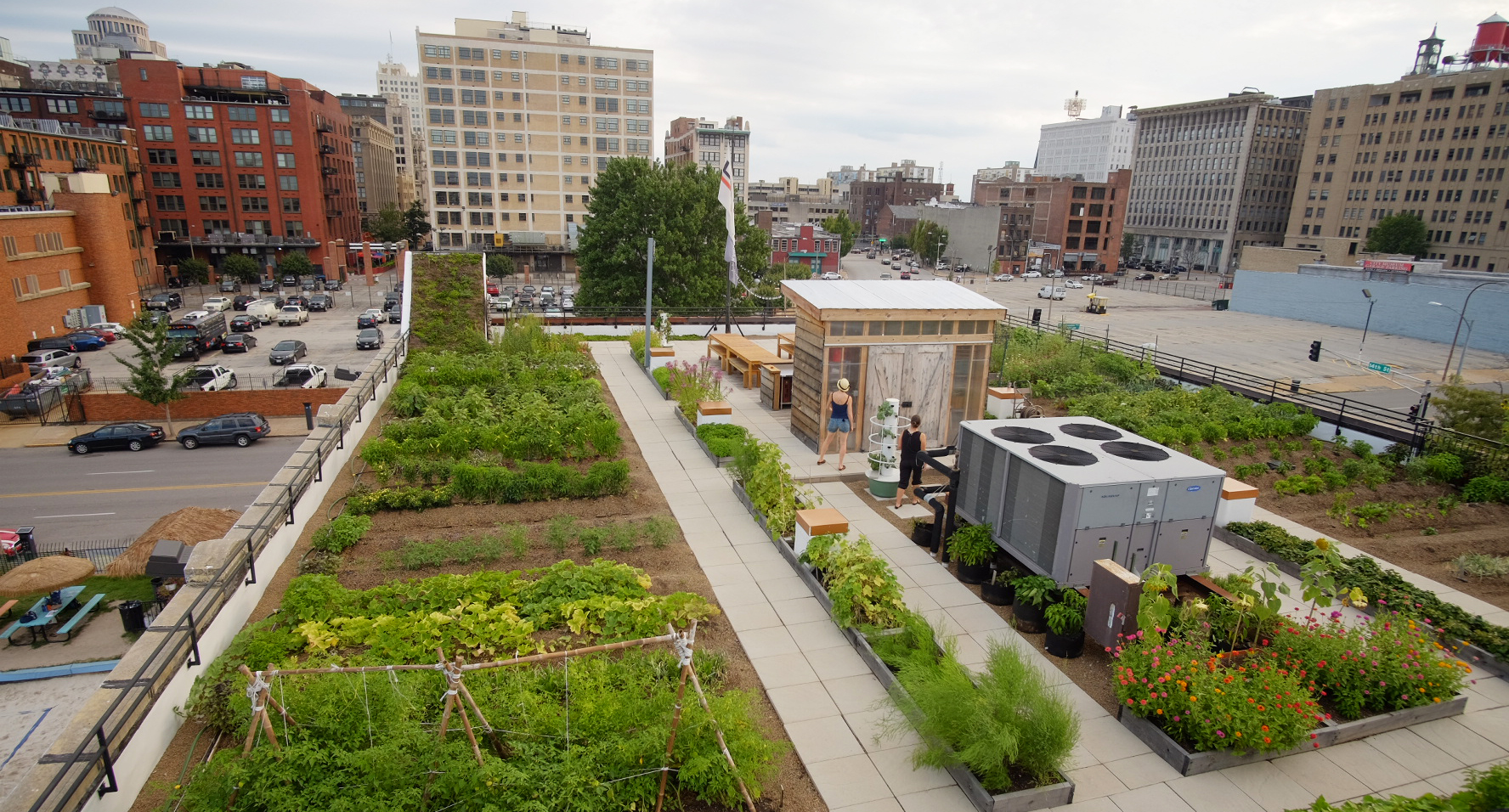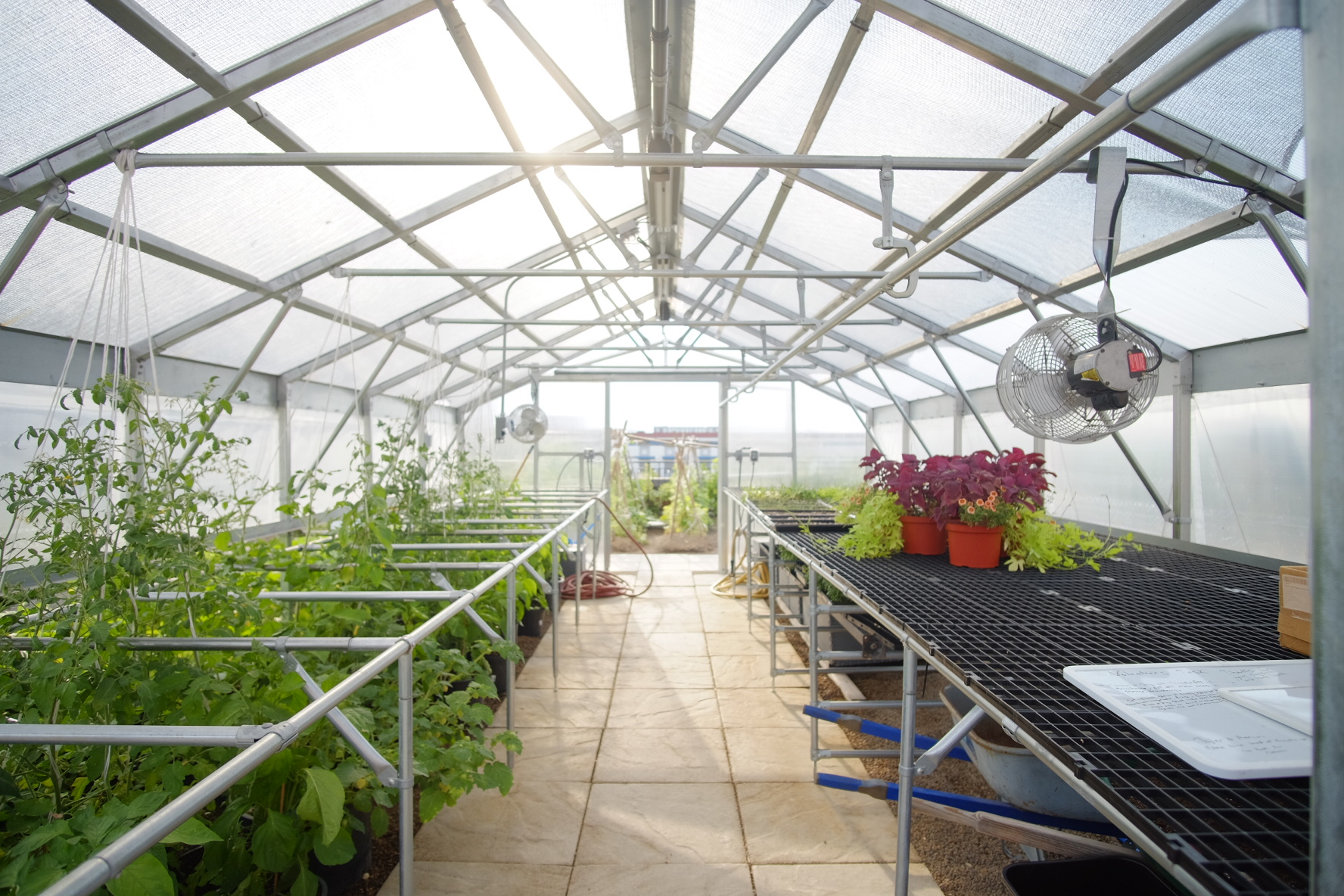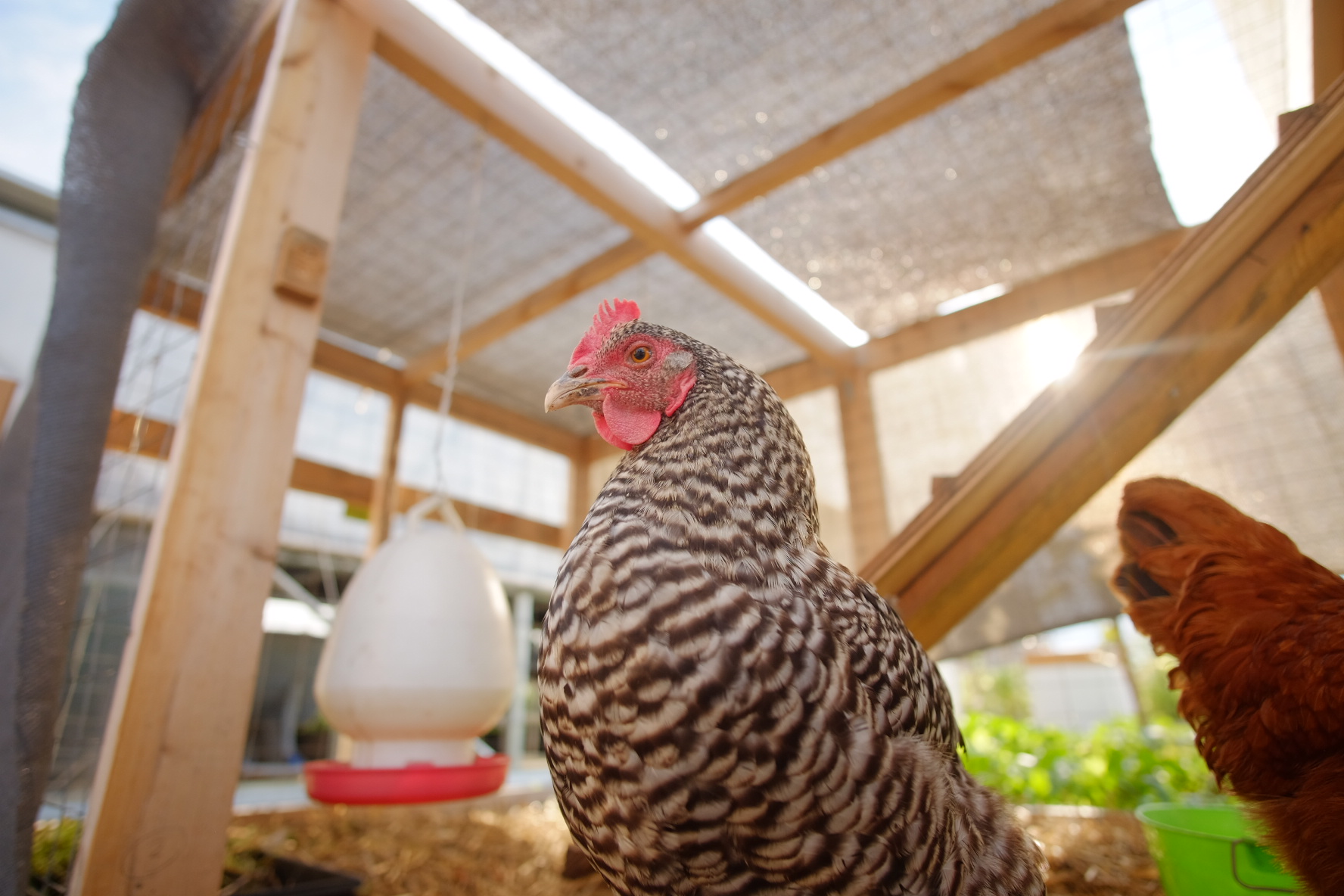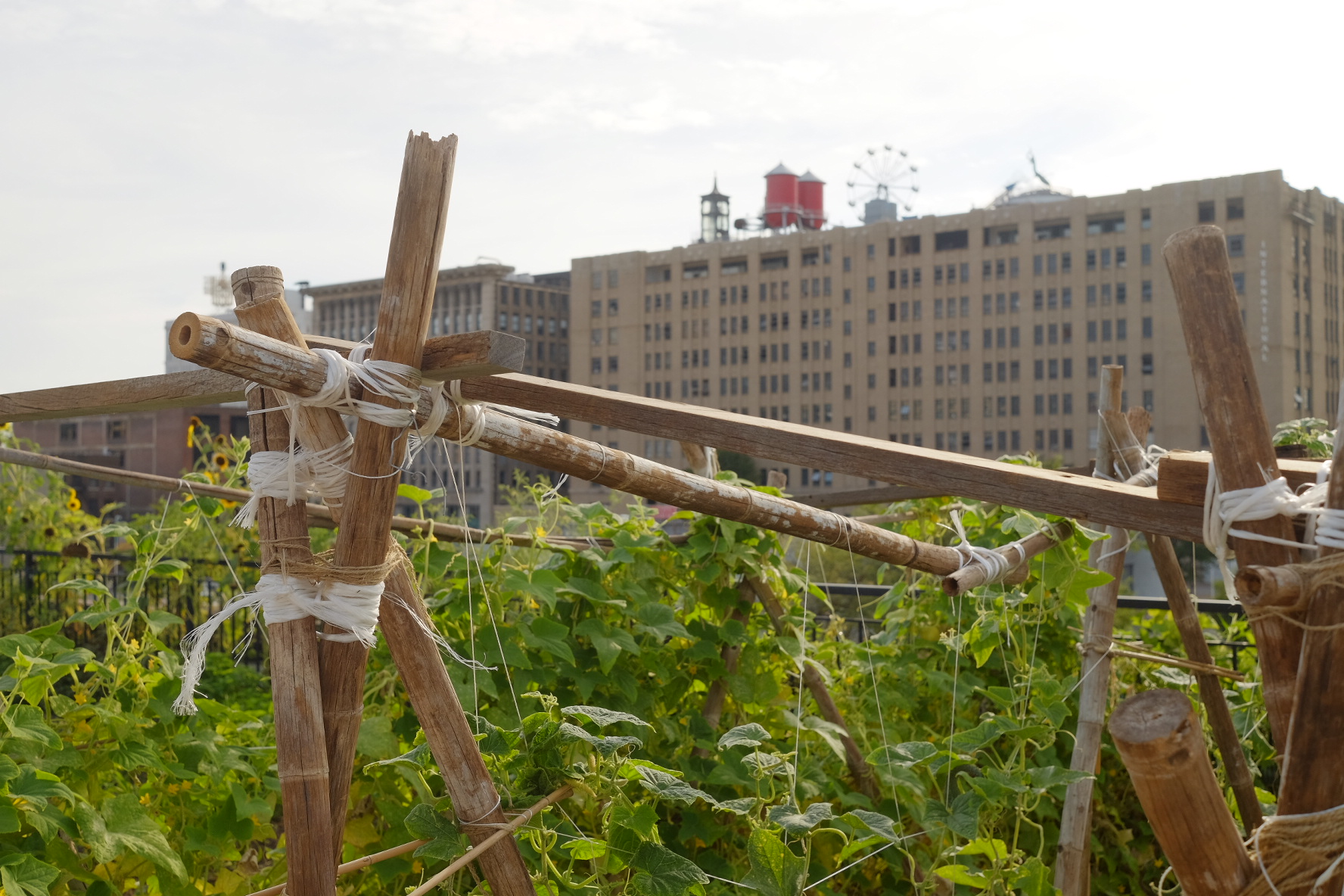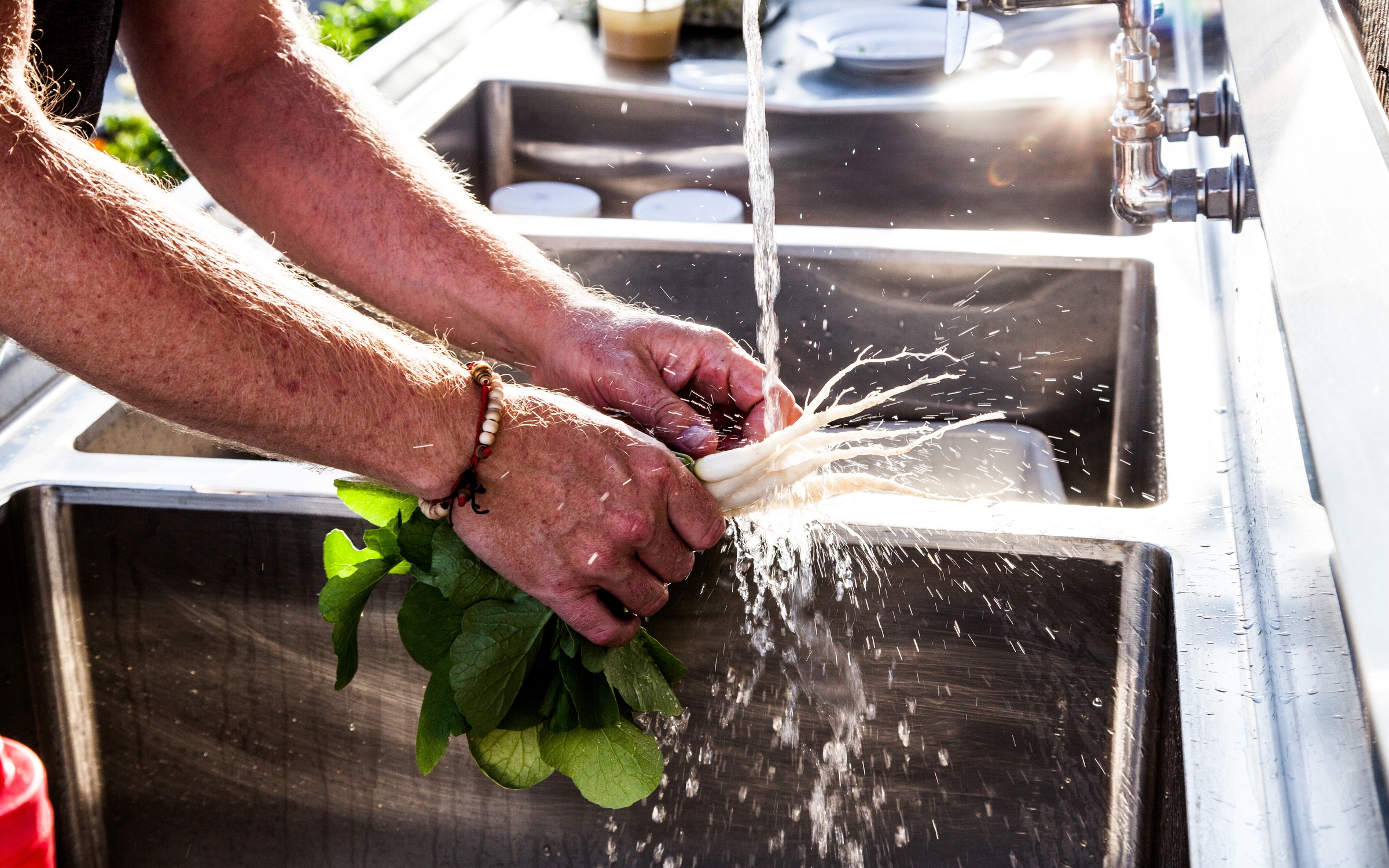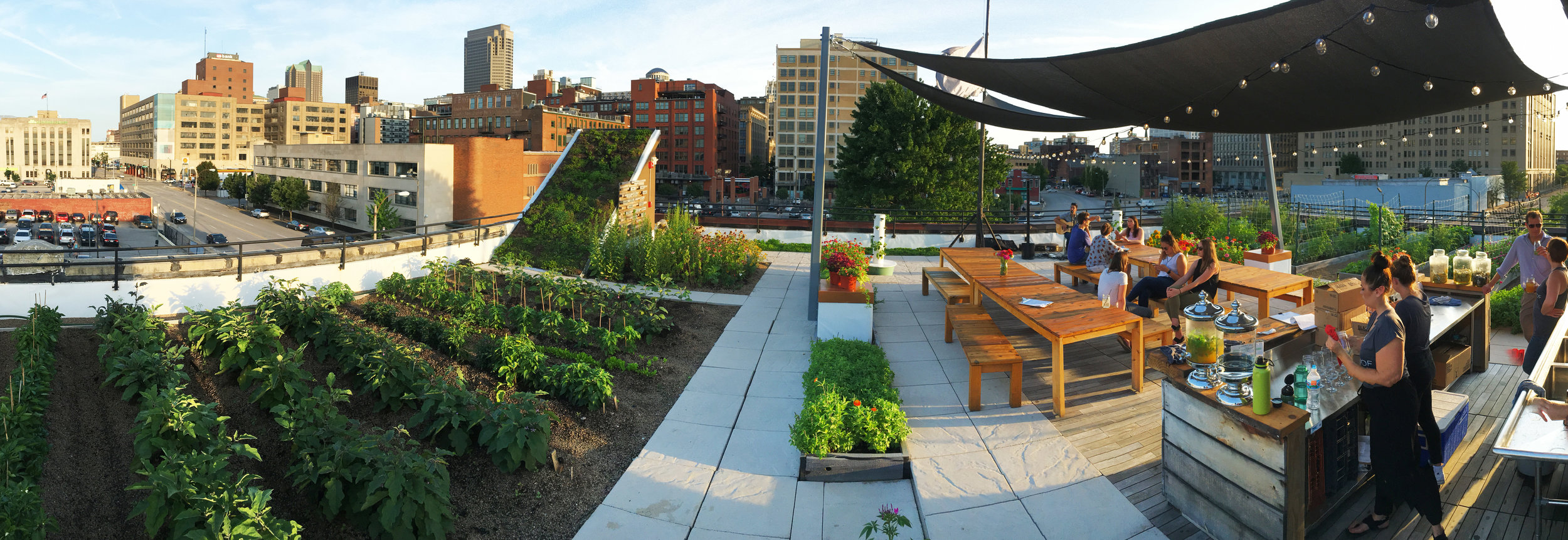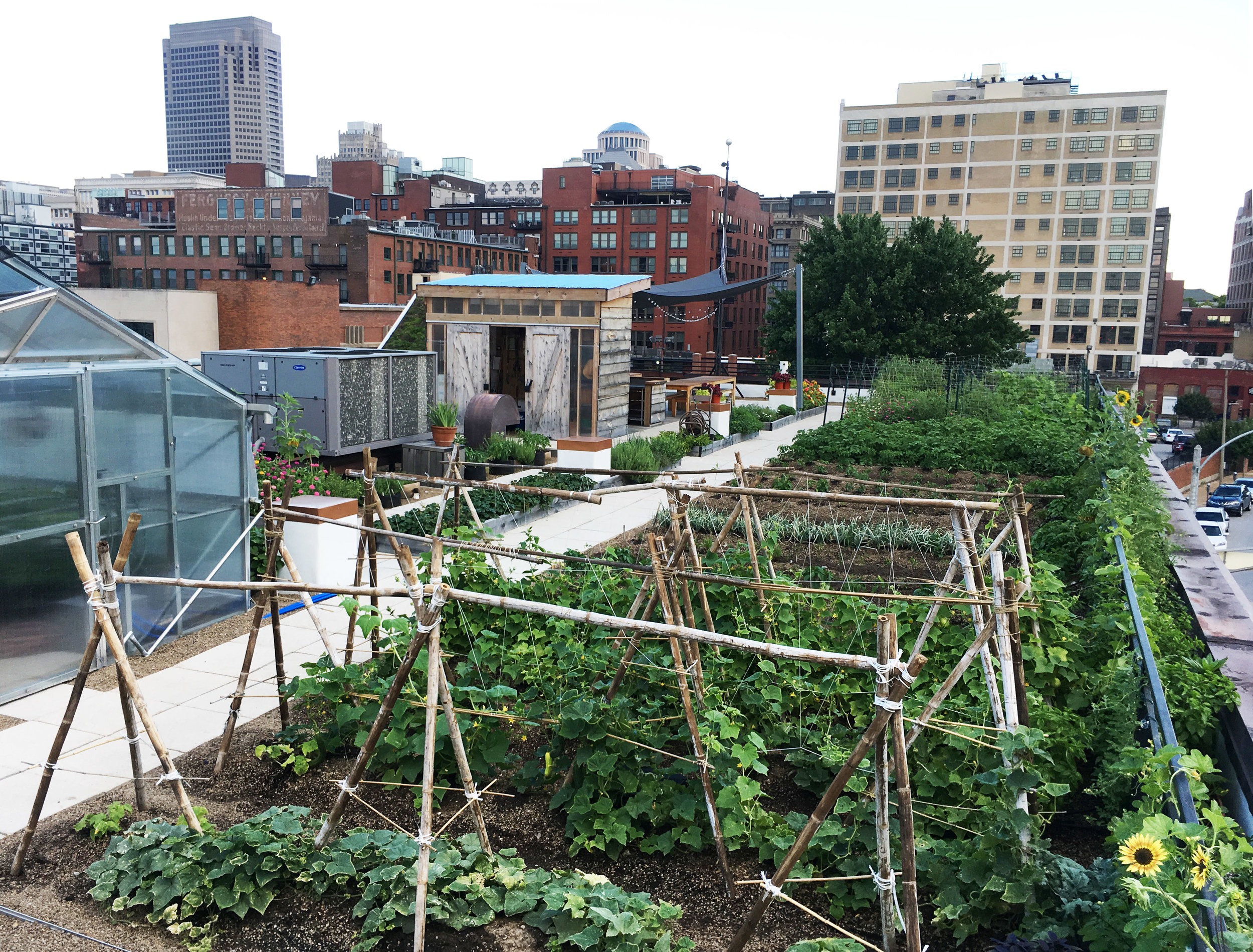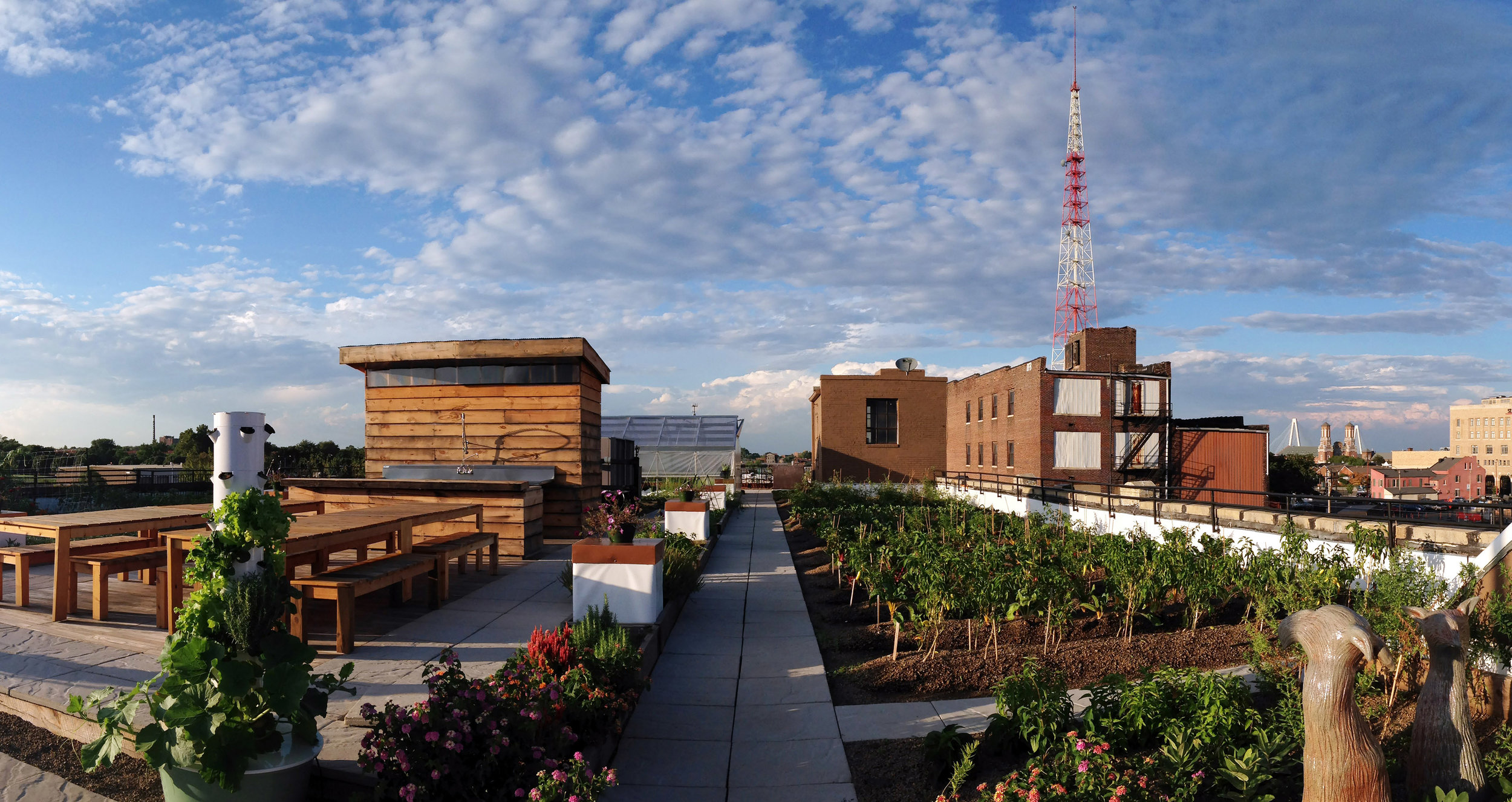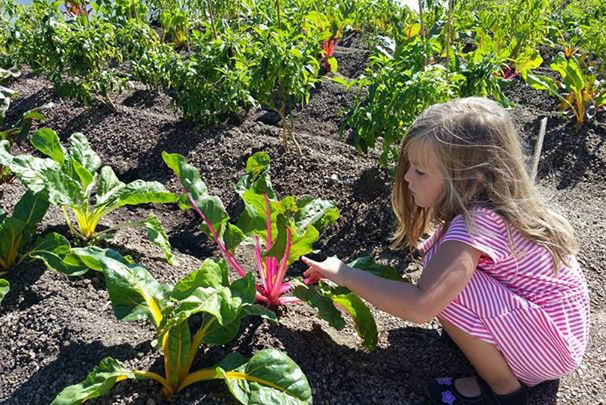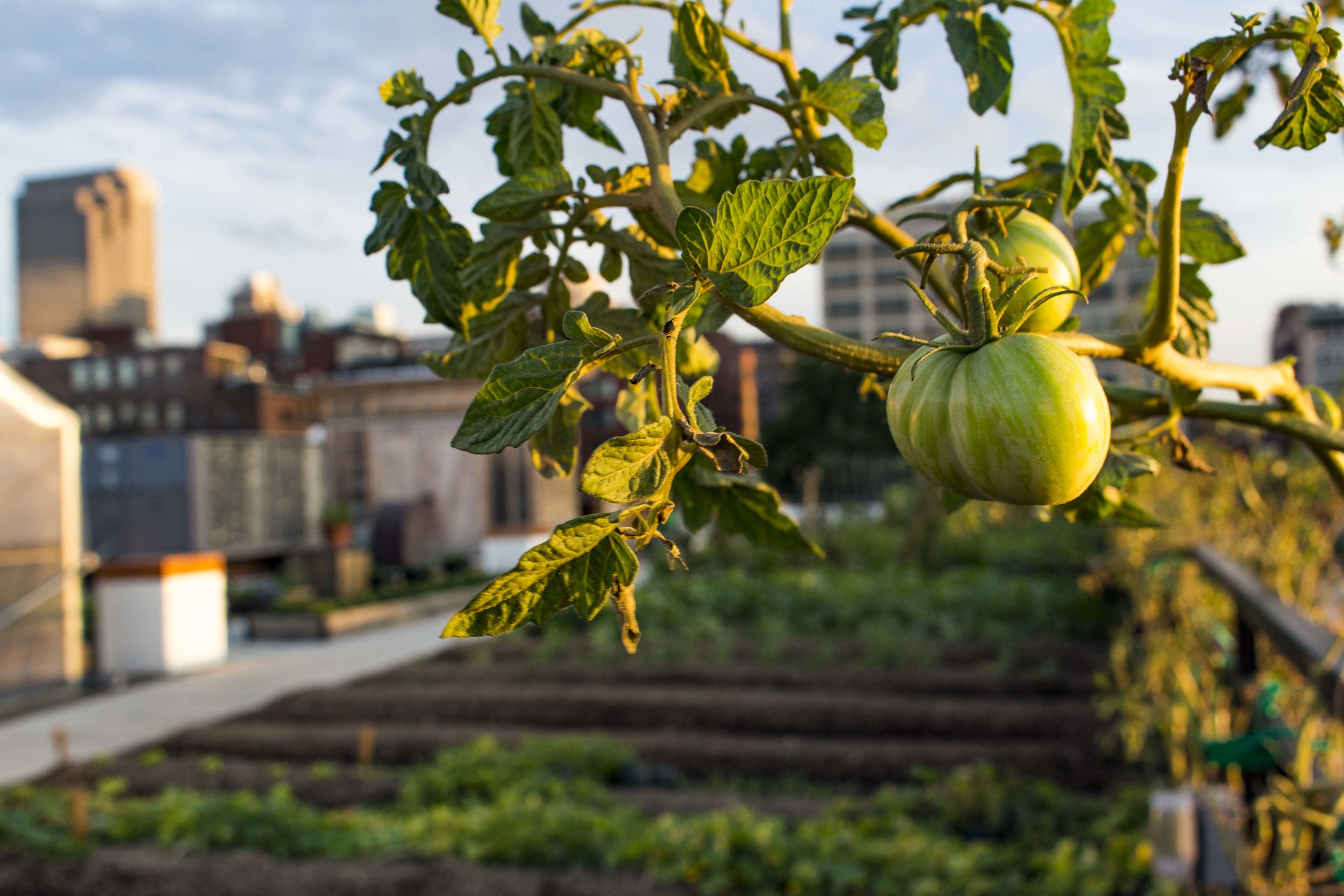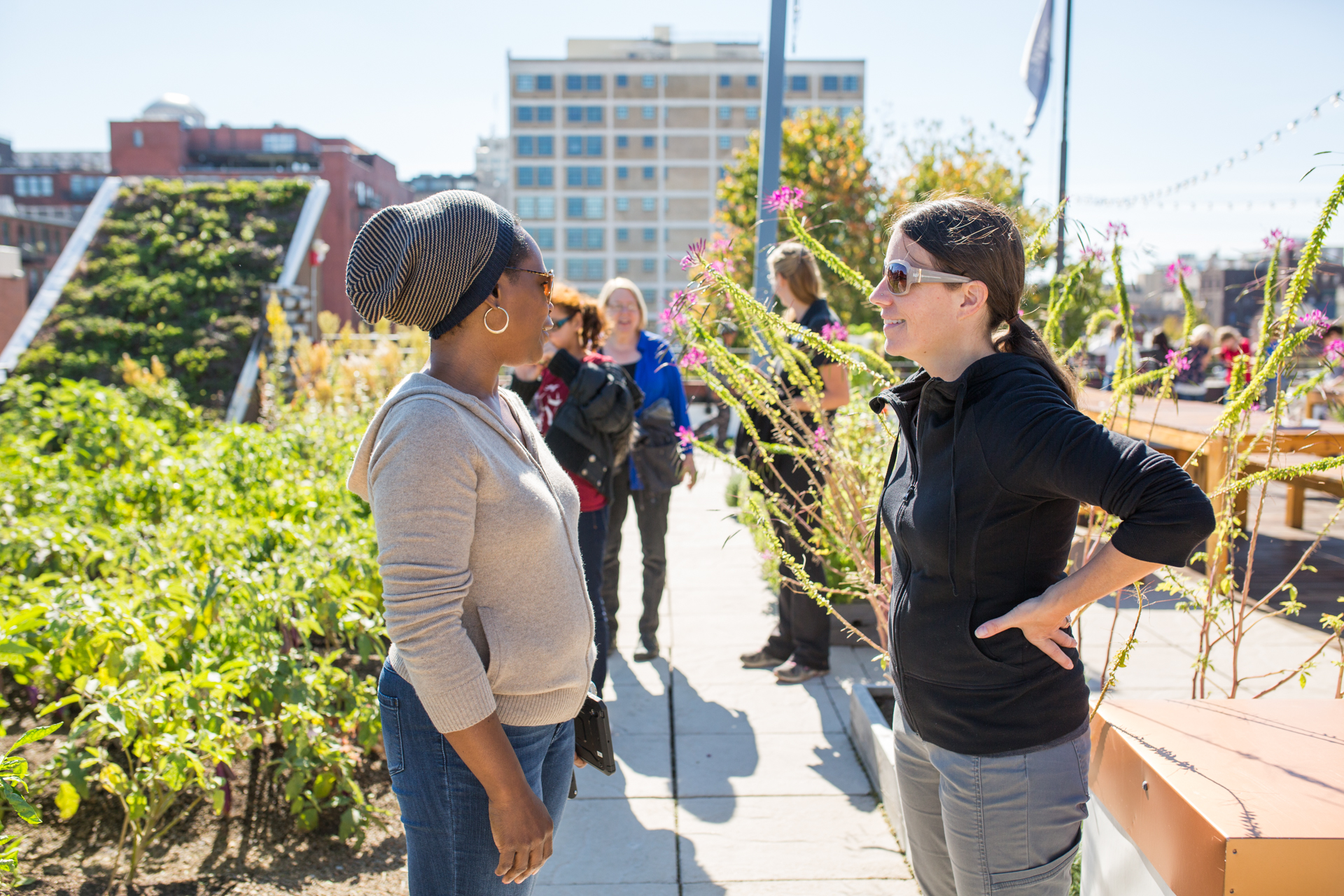FOOD ROOF farm
A NEW CHAPTER BEGINS
We are sad to announce the FOOD ROOF Farm has closed. The building that houses the farm closed and, Urban Harvest STL has worked to repurpose the FOOD ROOF’s growing infrastructure at our network of farms and community gardens.
Learn more about this development and read a letter from our Board of Directors.
FOOD ROOF Farm, the first rooftop farm in St. Louis, Missouri, was a model for urban agriculture, sustainable building, stormwater management and community development. Not your typical farm, Urban Harvest STL led the collaboration of architects, landscape architects, green roof experts, horticulturalists, structural engineers, agronomists and urban farmers to create this internationally recognized project.
This exciting 8,500 square foot rooftop was a dynamic example of a green infrastructure, and so much more. For example, the FOOD ROOF farm design was proven to capture up to 17,000 gallons of stormwater per storm event resulting in the reduction and mitigation of stormwater runoff issues in downtown St. Louis.
The farm was also designed to maximize food production while providing a unique community green space and education center, and grew over 200 varieties of edible plants. Other design elements included a shaded and multi-functional community hub space, state of the art greenhouse, chicken house (with a green roof), living wall, and hydroponic towers integrated into a beautiful green space for the enjoyment of the surrounding urban community.
The FOOD ROOF served as a “living laboratory” where urban farmers experimented with various growing techniques – from rooftop soil farming to hydroponics and vertical farming – to test side-by-side which methods work best in St Louis’s microclimate and to inform future rooftop farms in the region.
The FOOD ROOF was also home to a beautiful mural, painted in 2019 by local artists Robert and Liza Fishbone.
““FOOD ROOF in St Louis is one of the best rooftop farms I’ve been to: a great combination of technical, horticultural and social smarts, transforming a bare rooftop into a vibrant community place. I was amazed at what kind, thoughtful people Urban Harvest STL brought together. Add FOOD ROOF to your must-see and support list!””
Benefits of Rooftop Farming
rooftop agriculture compounds the benefits of a green roof, adding employment, food security, and access to local produce.
Social
Increases access to nutrient dense, healthy food
Engages community in the local food system
Provides space for people to grow their own food
Serves as an accessible education platform
Creates safe, beautiful and productive neighborhood green space
Economic
Reduces building energy costs
Increases life span of the roof
Creates jobs
Supports the local economy
Improves property value
Environmental
Mitigates stormwater runoff and flooding
Decreases urban heat island effect
Improves air quality
Reduces energy consumption and carbon emissions
Enhances biodiversity
